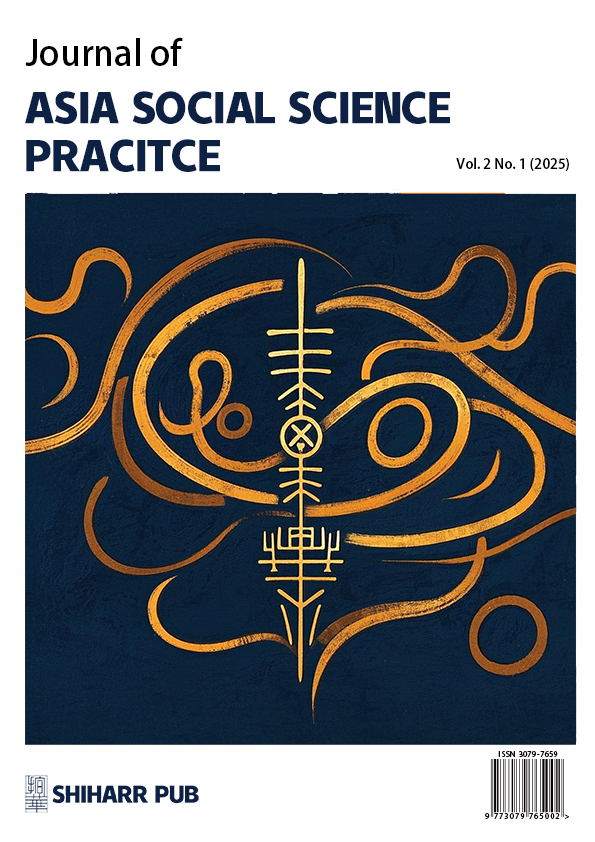Strategies for Improving Teacher-Child Interaction in Kindergarten Collective Teaching Activities
DOI:
https://doi.org/10.71411/jassp.2025.43Keywords:
kindergarten collective teaching activities, teacher-child interaction, classroom assessment system (CLASS)Abstract
Collective teaching activities are important scenes of teacher-child interaction, and the quality of teacher-child interaction is a key factor affecting teaching quality. In order to deeply explore the status quo of teacher-child interaction in kindergarten collective teaching activities and its optimization path, this study collects 30 video samples of kindergarten collective teaching activities, analyzes teacher-child interaction in kindergarten group teaching using the CLASS classroom assessment system, and analyzes the quality of teacher-child interaction by using SPSS26.0 for data analysis. The study found that the overall teacher-child interaction in kindergarten collective teaching activities is at a moderate level, and teachers show positive attitudes in emotional support, but still need to strengthen their educational support and language modeling, and there are still problems such as teachers' low educational sensitivity, teachers' dominance, children's lack of subjectivity, poor feedback quality, and insufficient language modeling. Based on this, this study proposes feasible recommendations: first, teachers should improve their educational sensitivity and flexibly adjust their interaction strategies; second, they should enrich their teaching and guidance methods to enhance children's independent explorations; and third, they should strengthen their verbal modeling to guide children's in-depth expressions.
References
Ansari, A., Pianta, R. C., Whittaker, J. V., Vitiello, V. E., & Ruzek, E. A. (2022). Preschool Teachers’ Emotional Exhaustion in Relation to Classroom Instruction and Teacher-Child Interactions. Early Education and Development, 33(1), 107-120.
Åström, F., Björck-Åkesson, E., Sjöman, M., & Granlund, M. (2022). Everyday Environments and Activities of Children and Teachers in Swedish Preschools. Early Child Development and Care, 192(2), 187-202.
Han, C. (2015). A Study on the Quality of Teacher-Child Interaction in Secondary Kindergartens in Shanghai. Shanghai: East China Normal University.
Han, C. (2016). New Trends in International Preschool Education Quality Research. Global Education Outlook, 45(9), 92-99.
Huang, X., & Song, Y. (2013). The Quality and Performance Evaluation of Preschool Education—Taking the Process Quality Evaluation of Kindergartens as an Example. Peking University Education Review, 11(1), 2-10.
Ishimine, K., & Tayler, C. (2014). Assessing Quality in Early Childhood Education and Care. European Journal of Education, 49(2), 272-290.
Ji, H. (2023). A Discussion on the Strategies for Constructing a Good Teacher-Child Interaction Relationship in Kindergarten Regional Activities. Contemporary Family Education, (22), 164-167.
Ministry of Education of the People's Republic of China. (2012). Guidelines for Learning and Development of Children Aged 3-6. Beijing: Capital Normal University Press.
Ministry of Education, Department of Basic Education. (2001). Interpretation of the Guidelines for Kindergarten Education (Trial). Nanjing: Jiangsu Education Press.
Ministry of Education. (2022). Notice on Issuing the Guidelines for Assessing the Quality of Care and Education in Kindergartens (No. 1, 2022). Bulletin of the Ministry of Education of the People's Republic of China, 2022(7), 9.
Pei, D. (2011). An Introduction to Educational Research Methods. Hefei: Anhui Education Press.
Pianta, R. C., Howes, C., Burchinal, M. D., et al. (2005). Features of Pre-Kindergarten Programs, Classrooms, and Teachers: Do They Predict Observed Classroom Quality and Child-Teacher Interactions? Applied Developmental Science, 9(3), 144-159.
Salminen, J., Guedes, C., Lerkkanen, M. K., Pakarinen, E., & Cadima, J. (2021). Teacher–Child Interaction Quality and Children's Self-Regulation in Toddler Classrooms in Finland and Portugal. Infant and Child Development, 30(3), e2222.
Sha, L., Zhang, G., Feng, P., Peng, X., & Luo, L. (2024). Teacher–Child Interactions During Picture Book Reading in Chinese Preschool Classrooms: A Comparative Study of Novice and Experienced Teachers. Early Years, 44(2), 283-298.
Sun, X. (2013). A Study on the Revision of the Classroom Assessment Coding System. Changchun: Northeast Normal University.
The Classroom Assessment Scoring System: CLASS. (2017). Retrieved from https://www.worldbank.org/en/programs/sief-trust-fund/brief/the-classroom-assessment-scoring-system-class
Wang, Y., Pan, B., Yu, Z., & Song, Z. (2024). The Relationship Between Preschool Teacher Trait Mindfulness and Teacher-Child Relationship Quality: The Chain Mediating Role of Emotional Intelligence and Empathy. Current Psychology, 43(3), 2667-2678.
Wu, Q., & Fan, J. (2020). Application and Suggestions of the CLASS Tool in Preschool Education Research in China. Modern Educational Science, (4), 150-156.

Downloads
Published
Issue
Section
License
Copyright (c) 2025 NAN HE, Nurfaradilla Mohamad Nasri (Author)

This work is licensed under a Creative Commons Attribution 4.0 International License.










